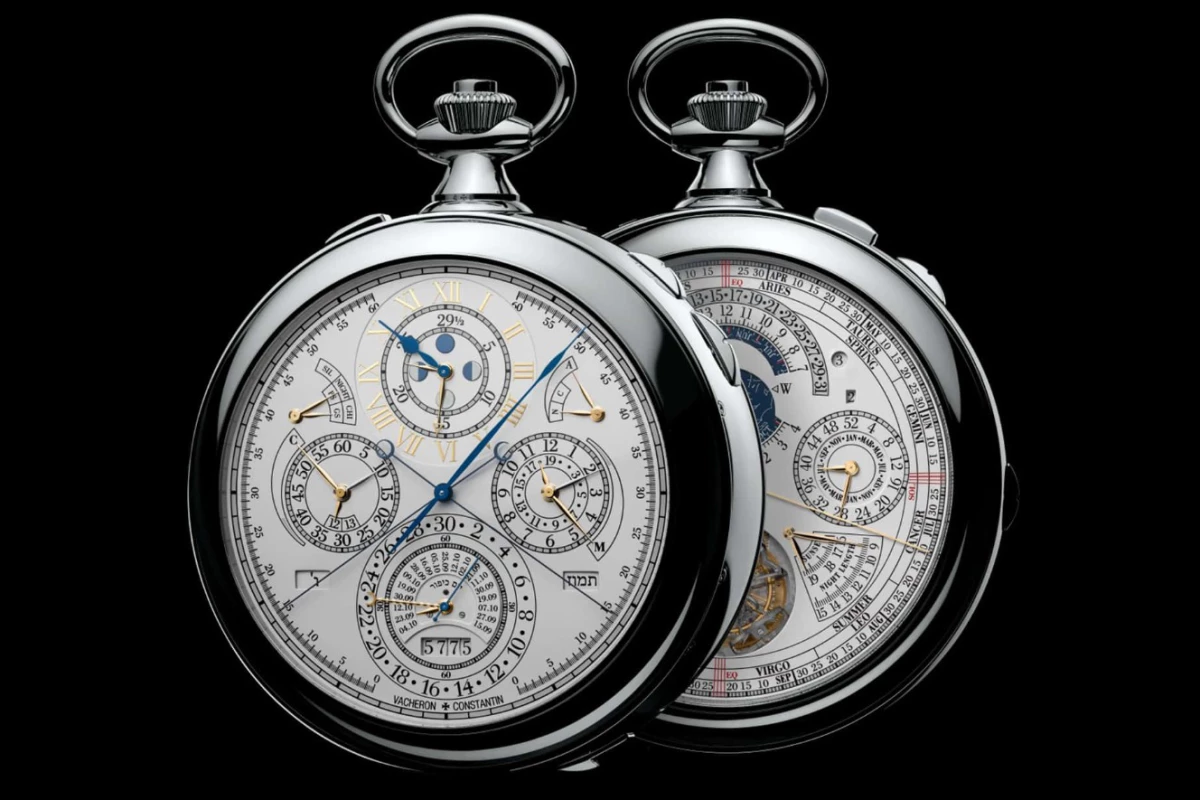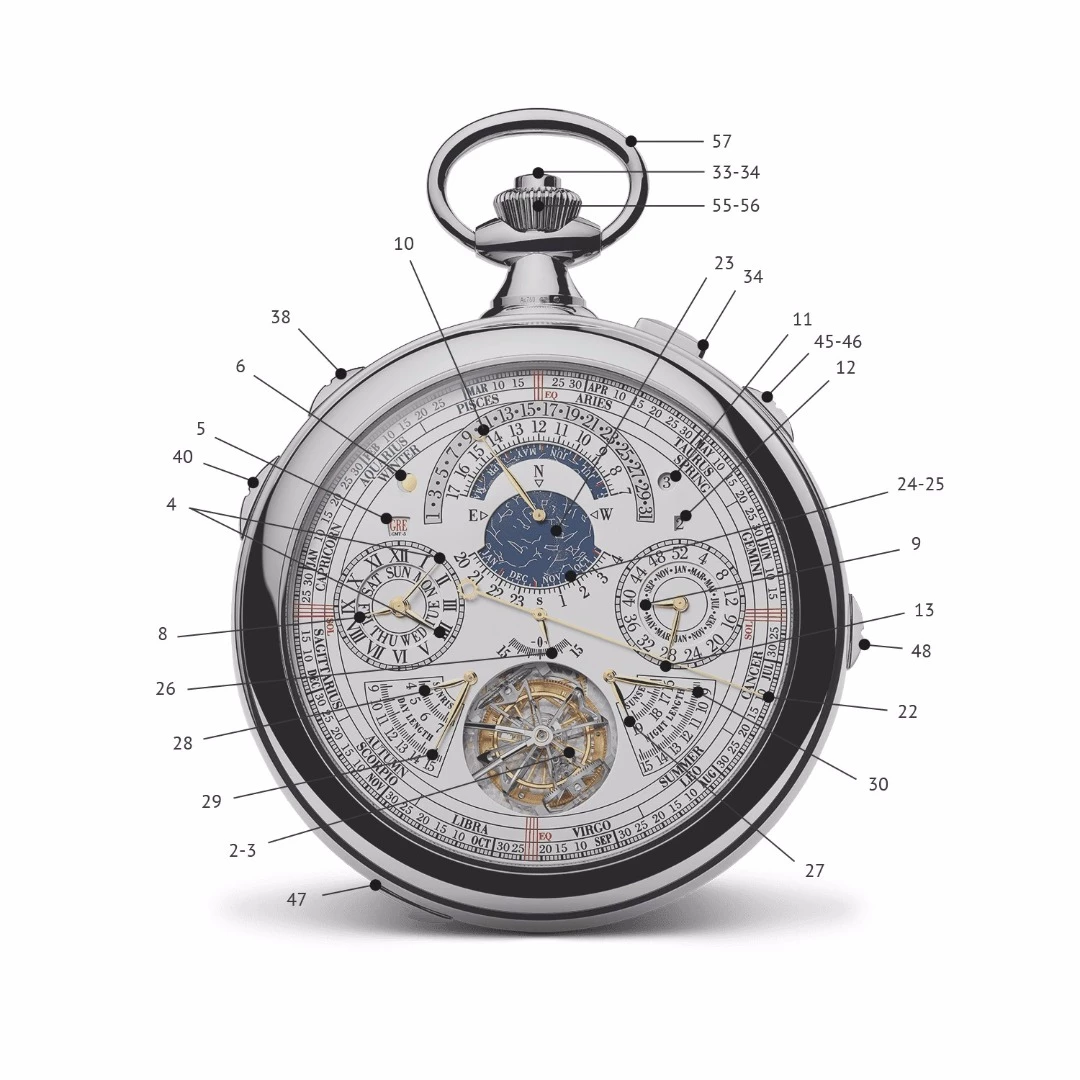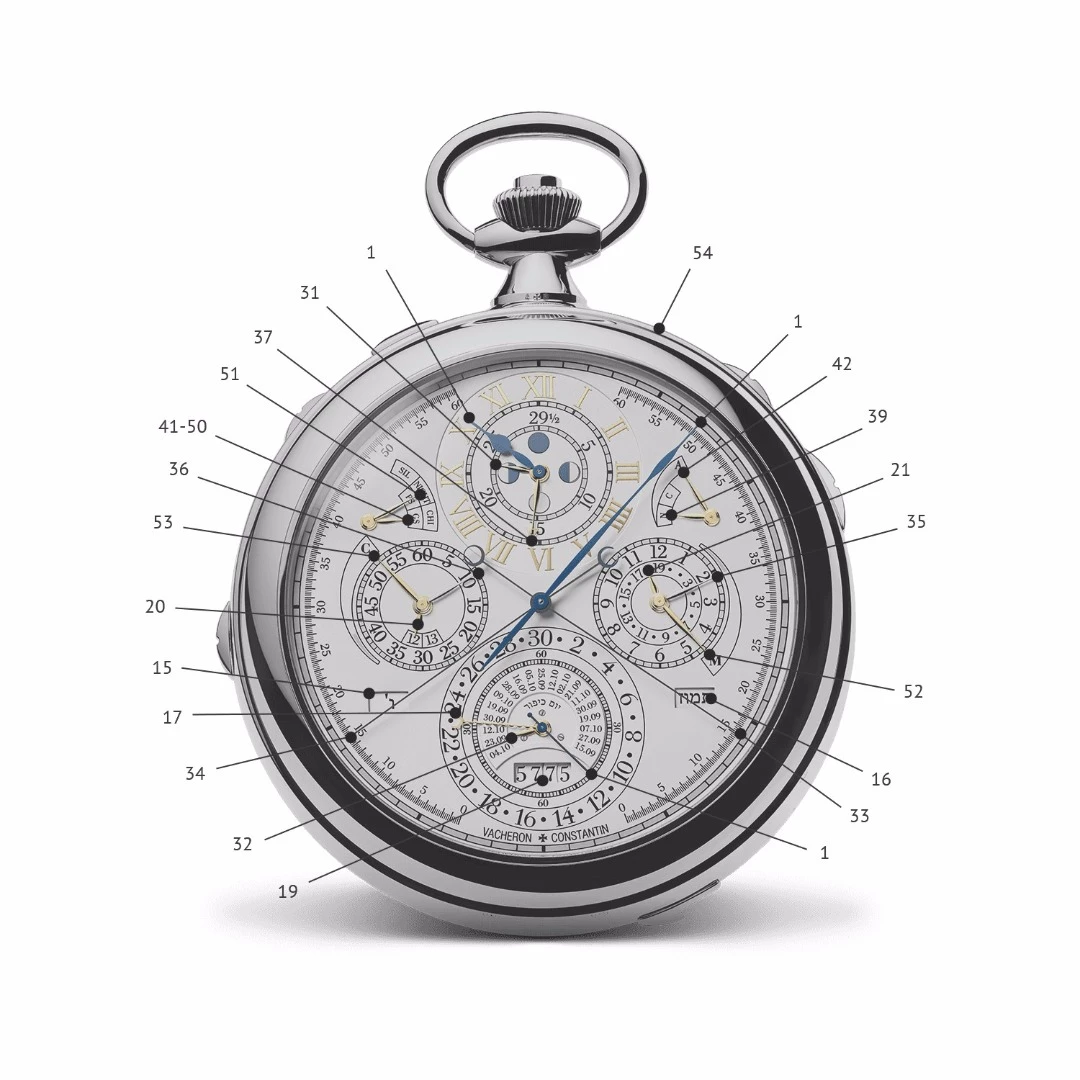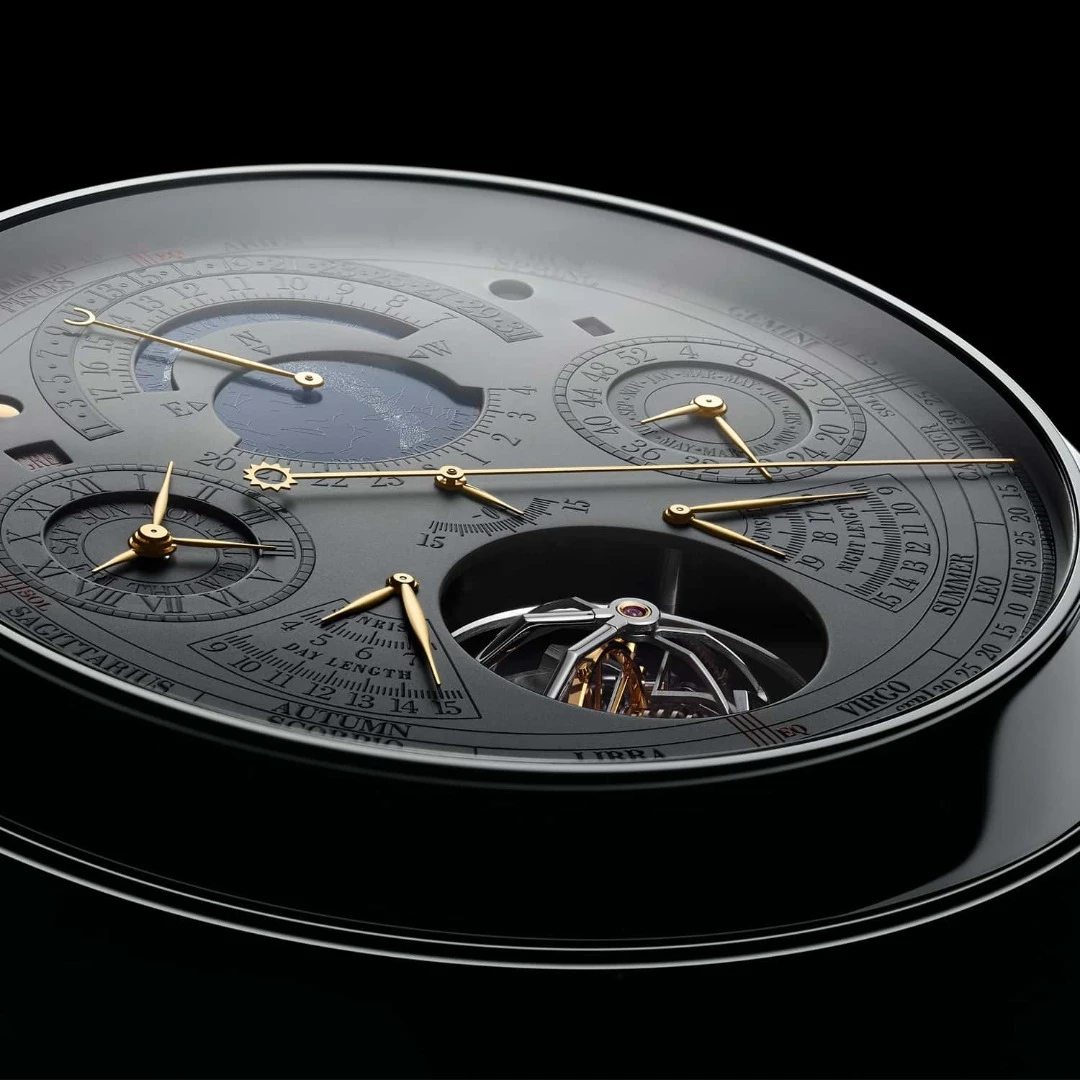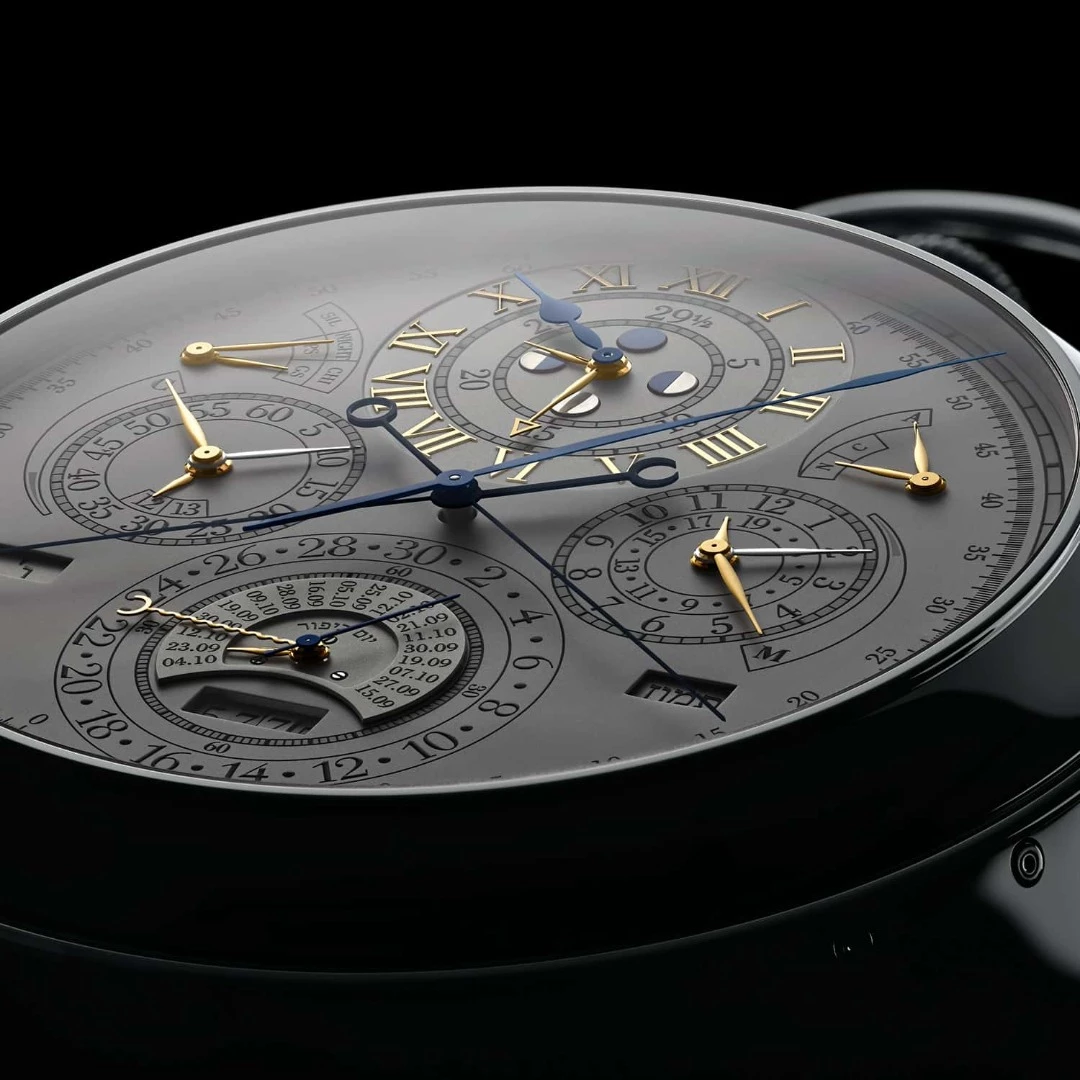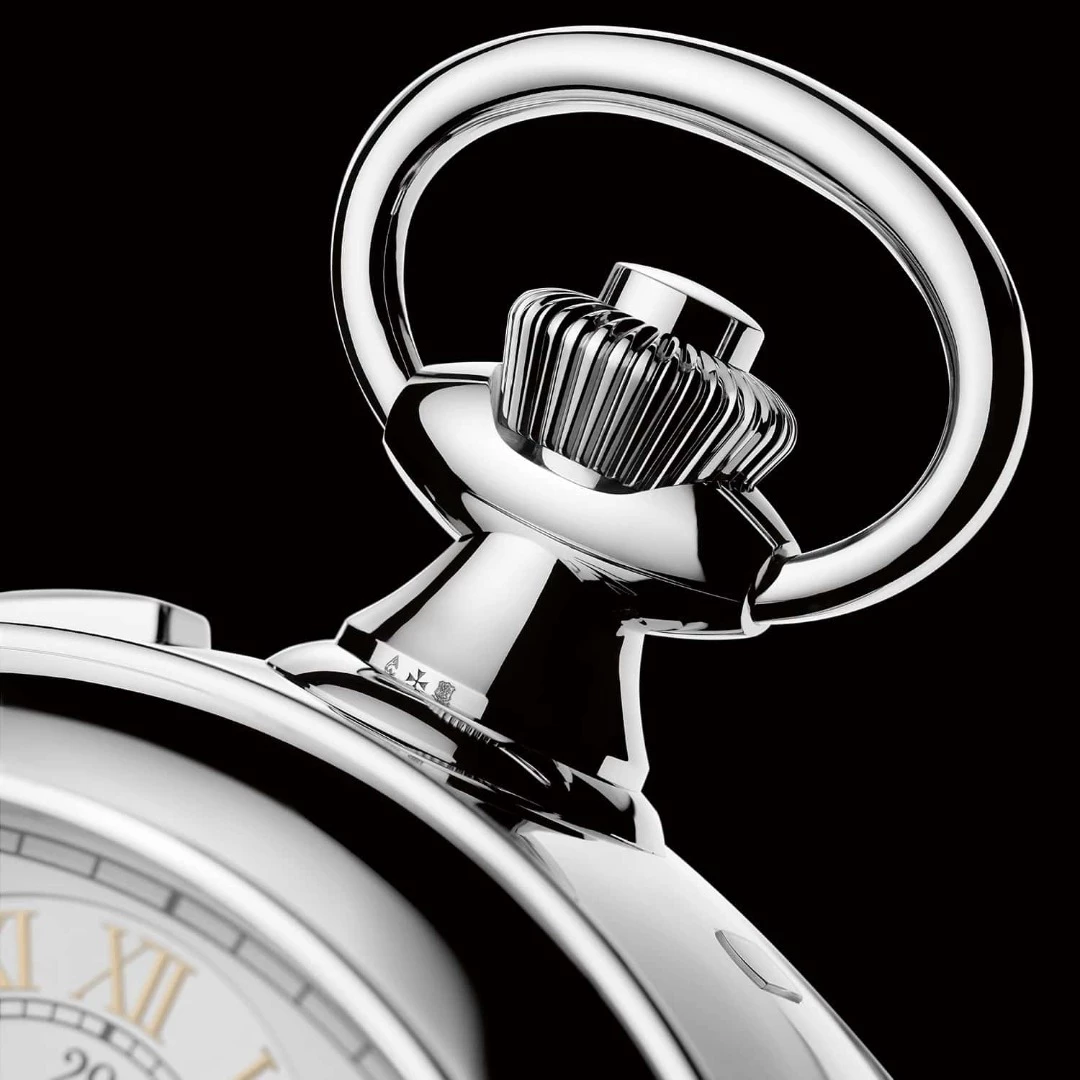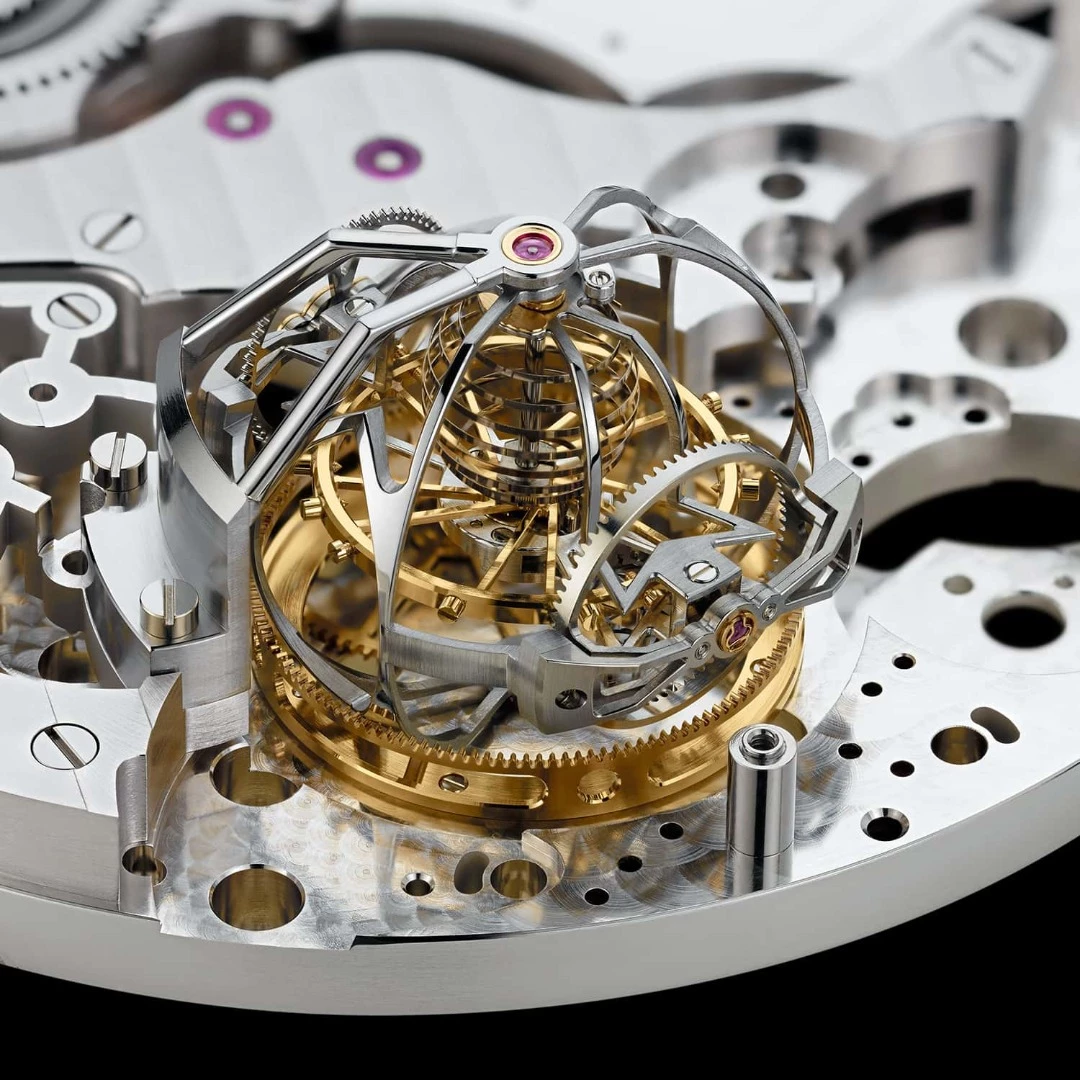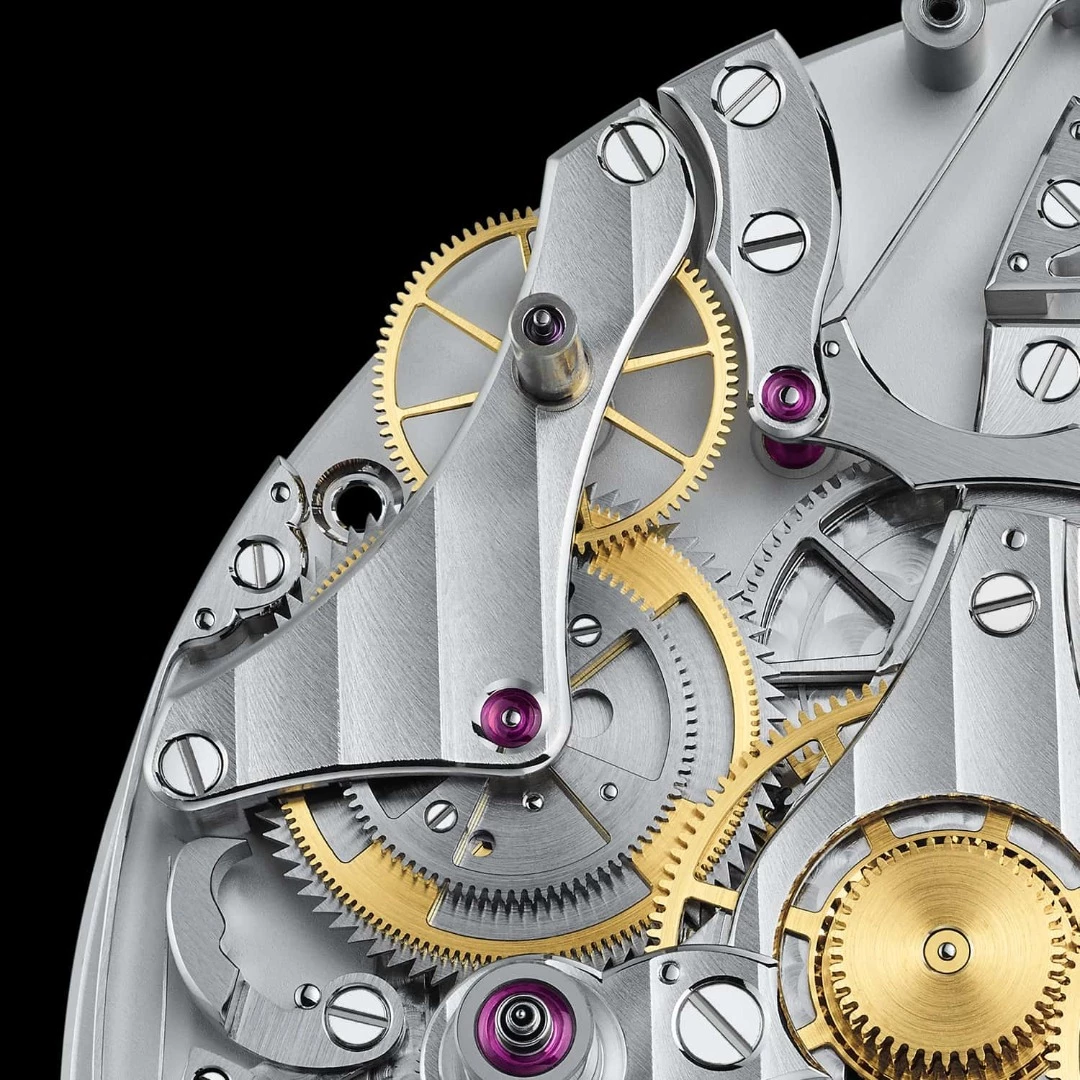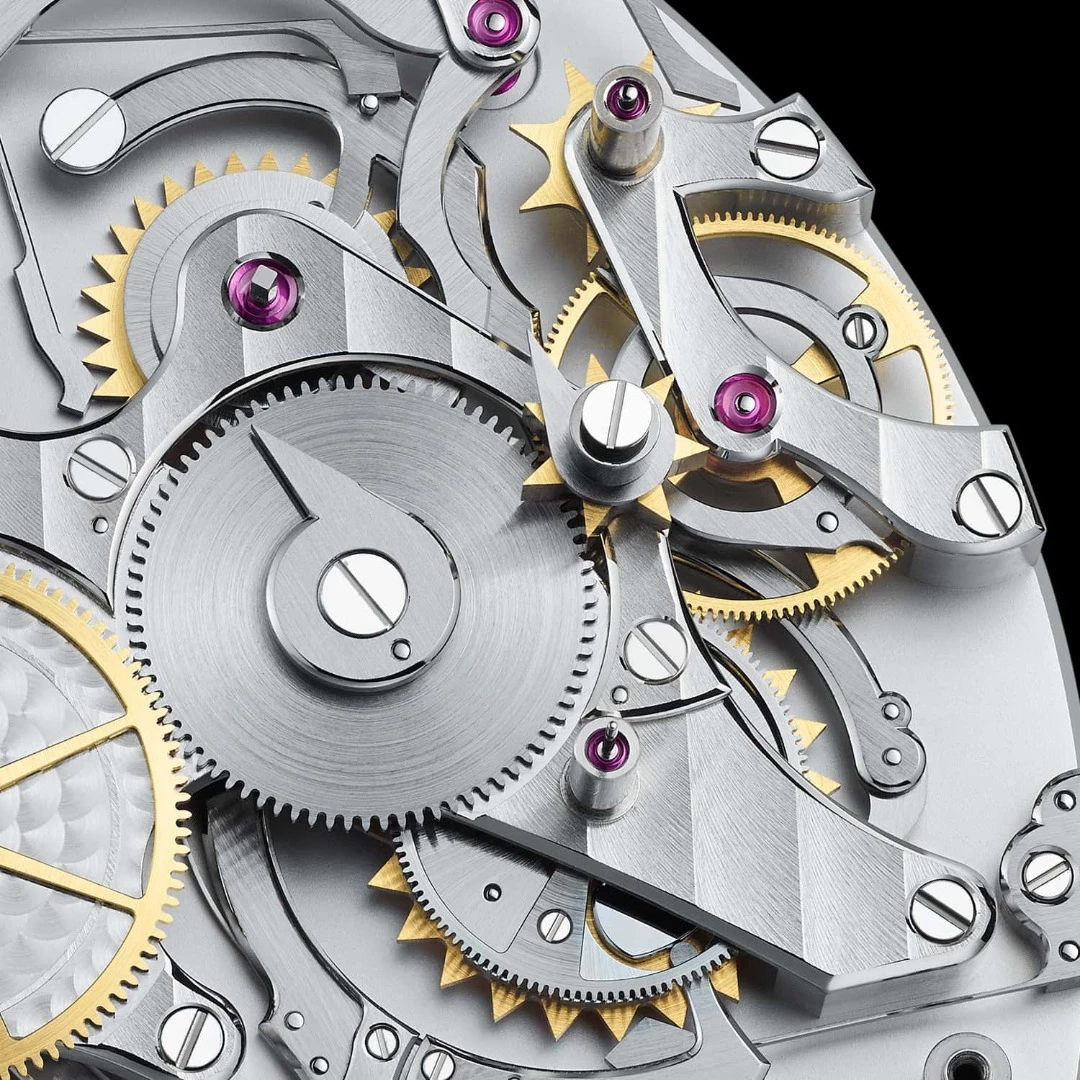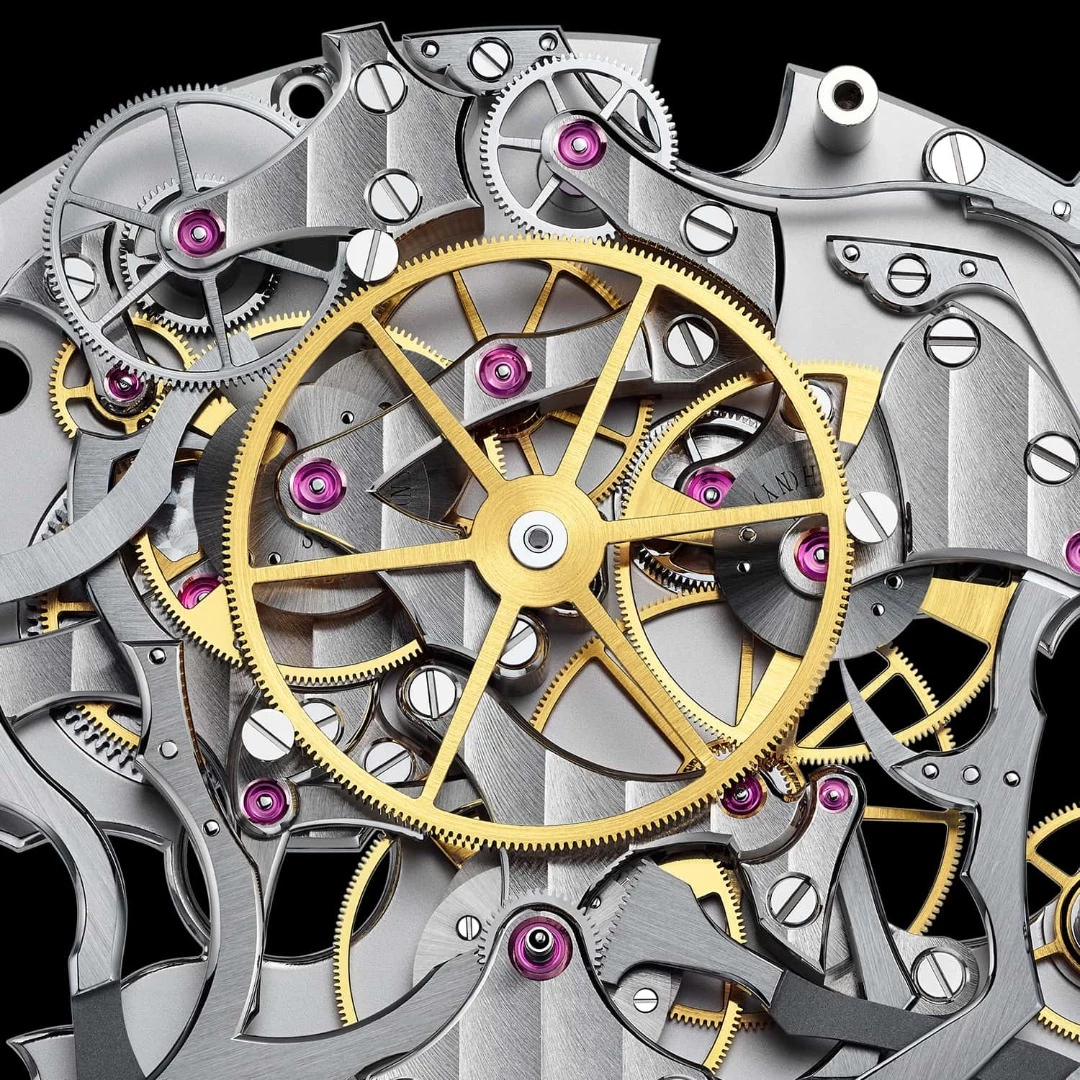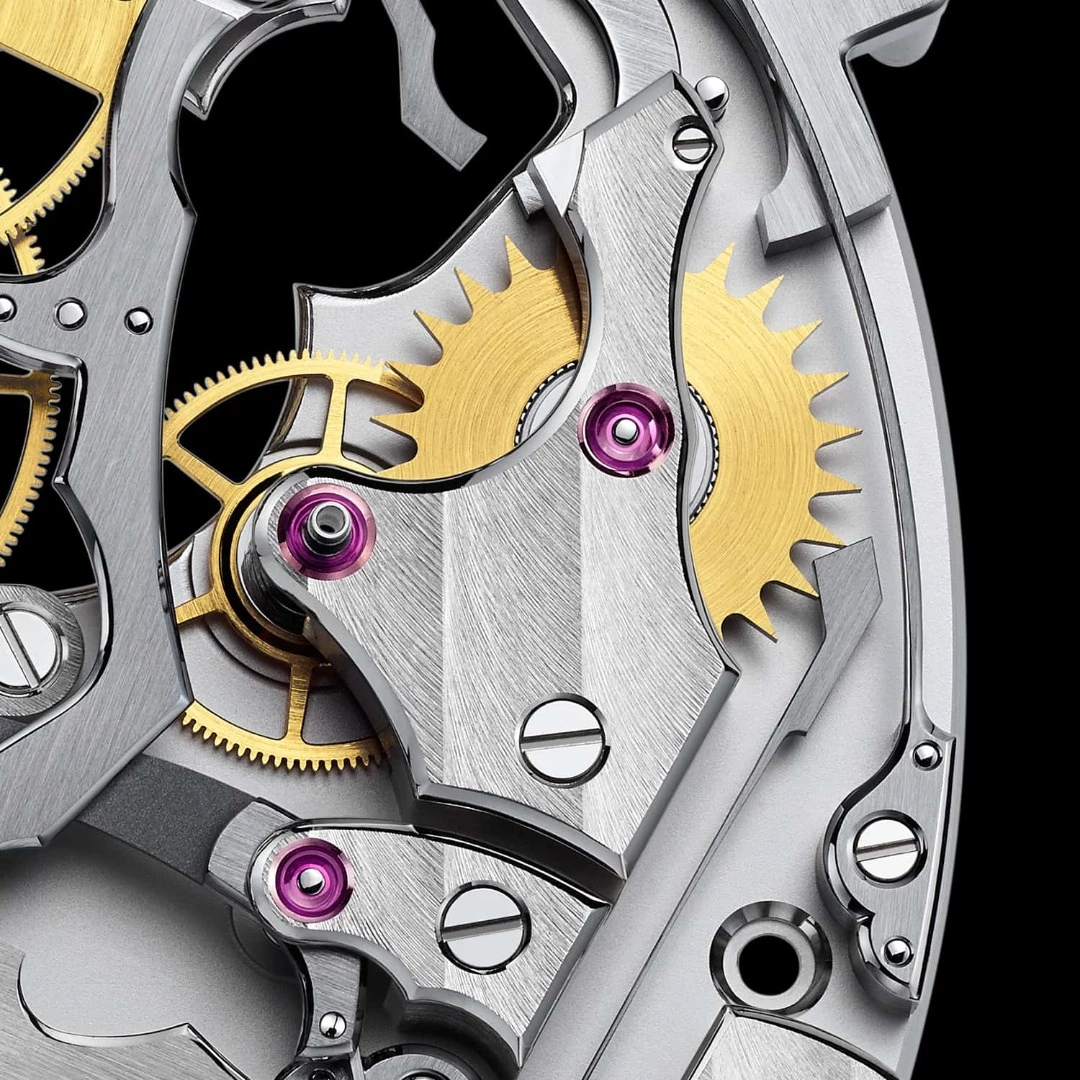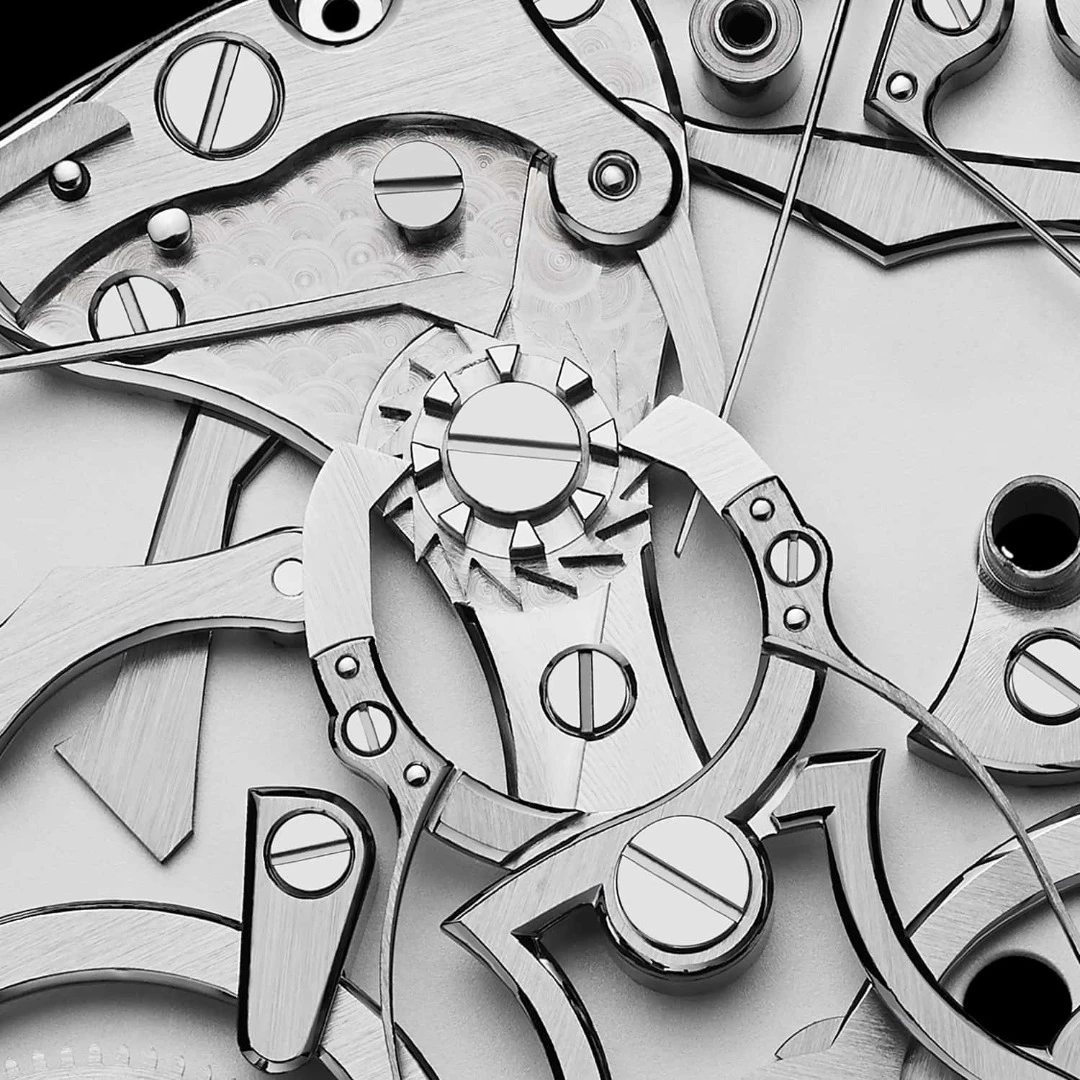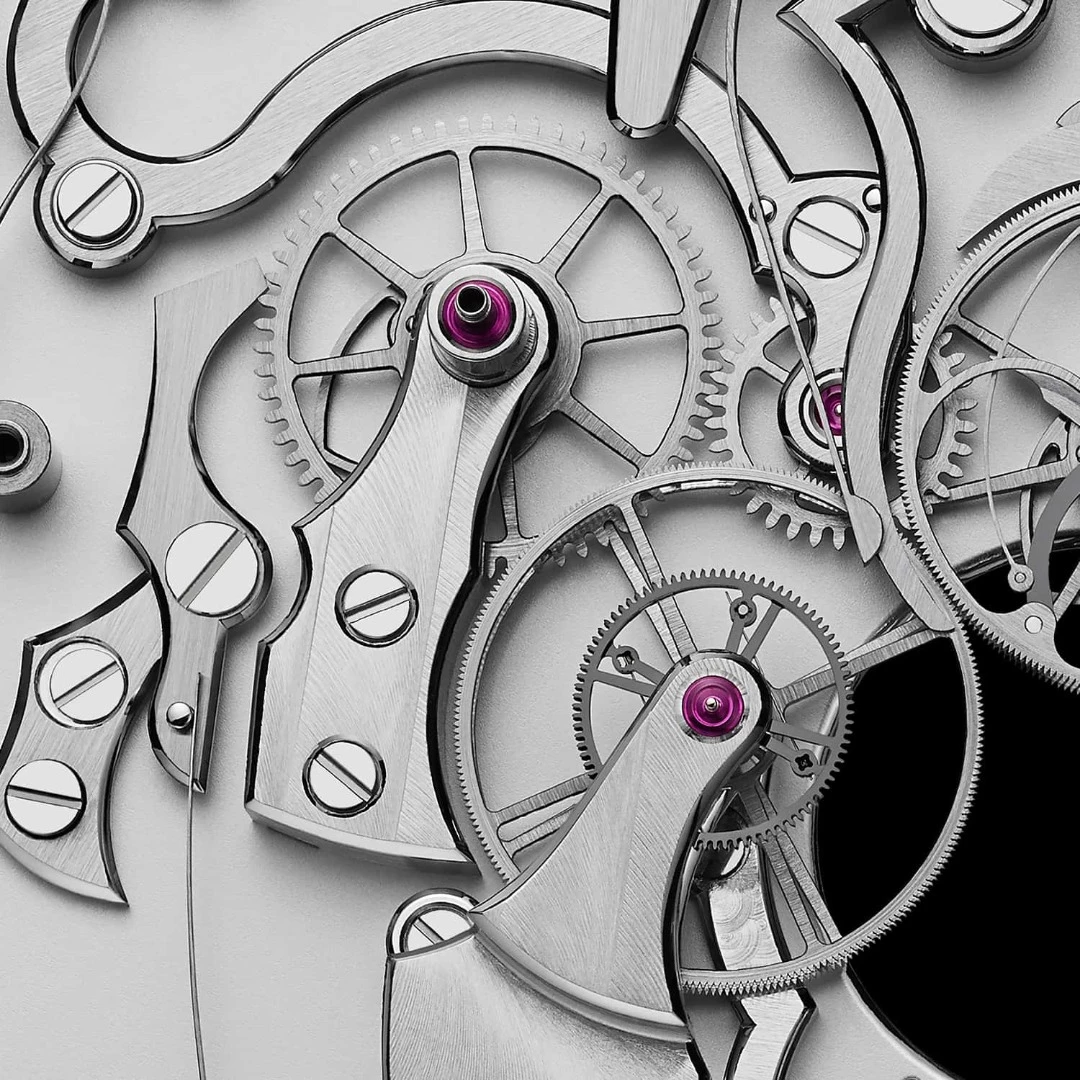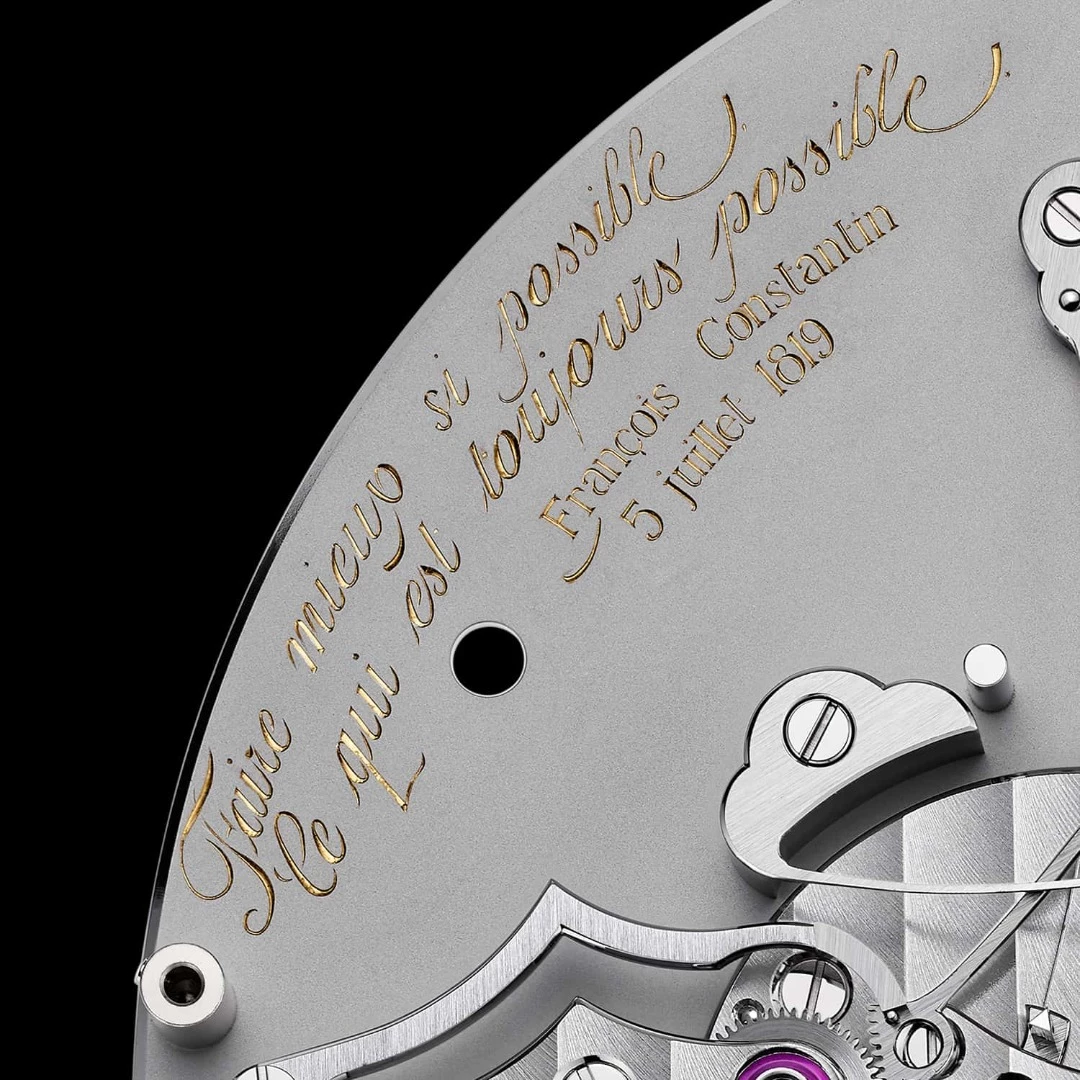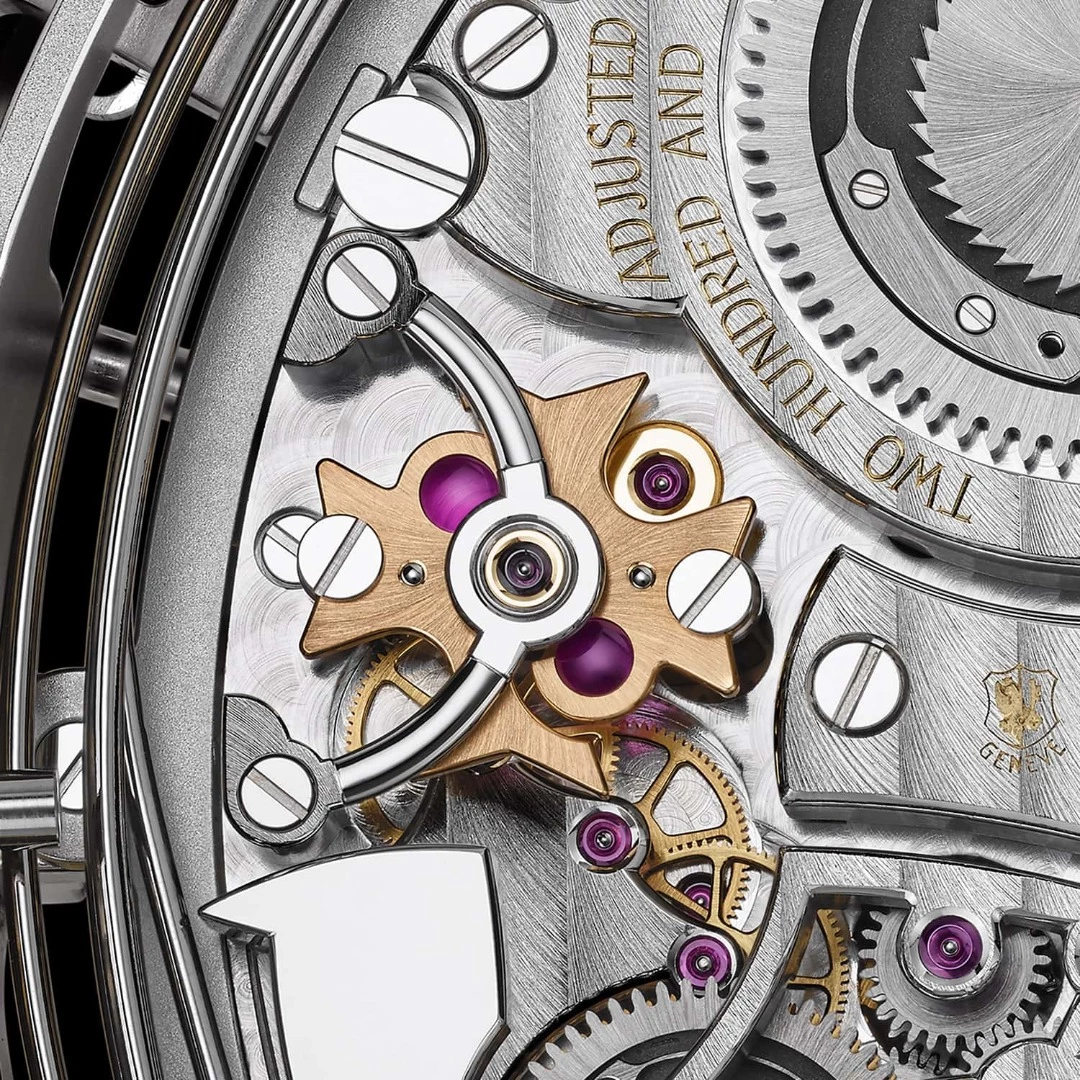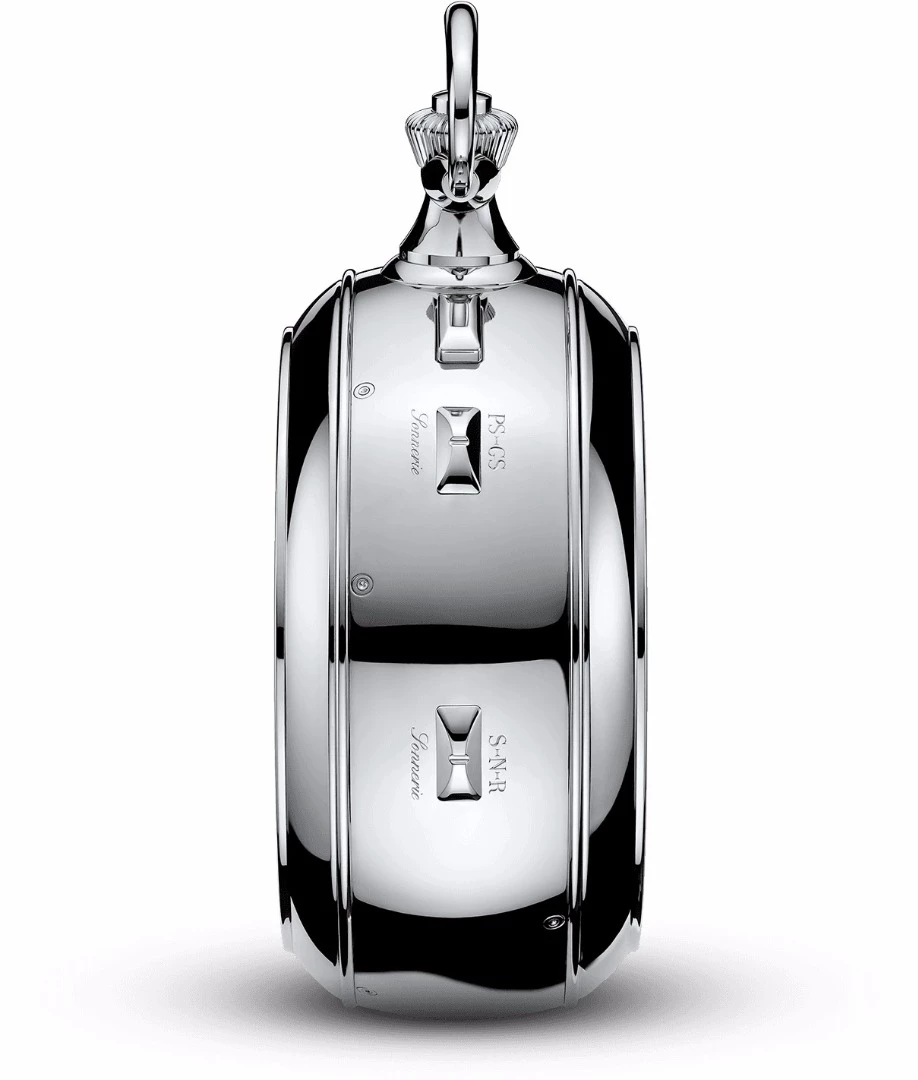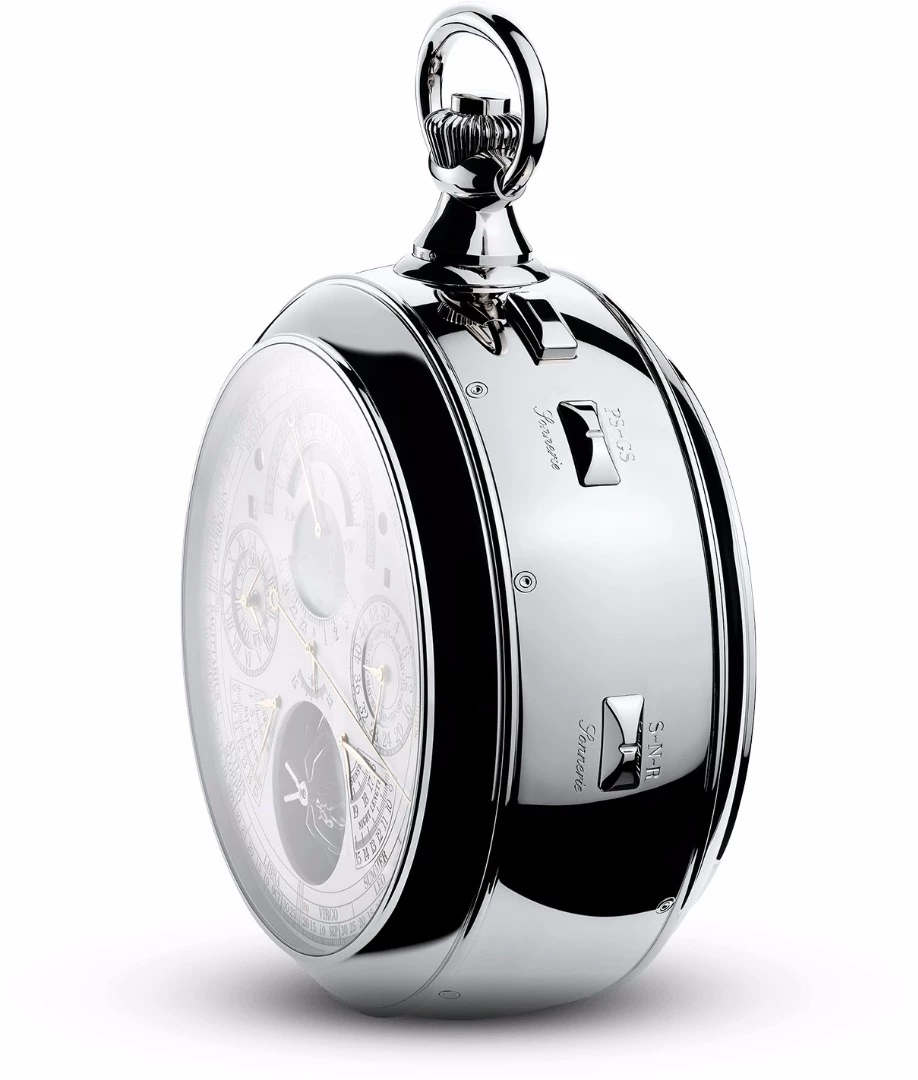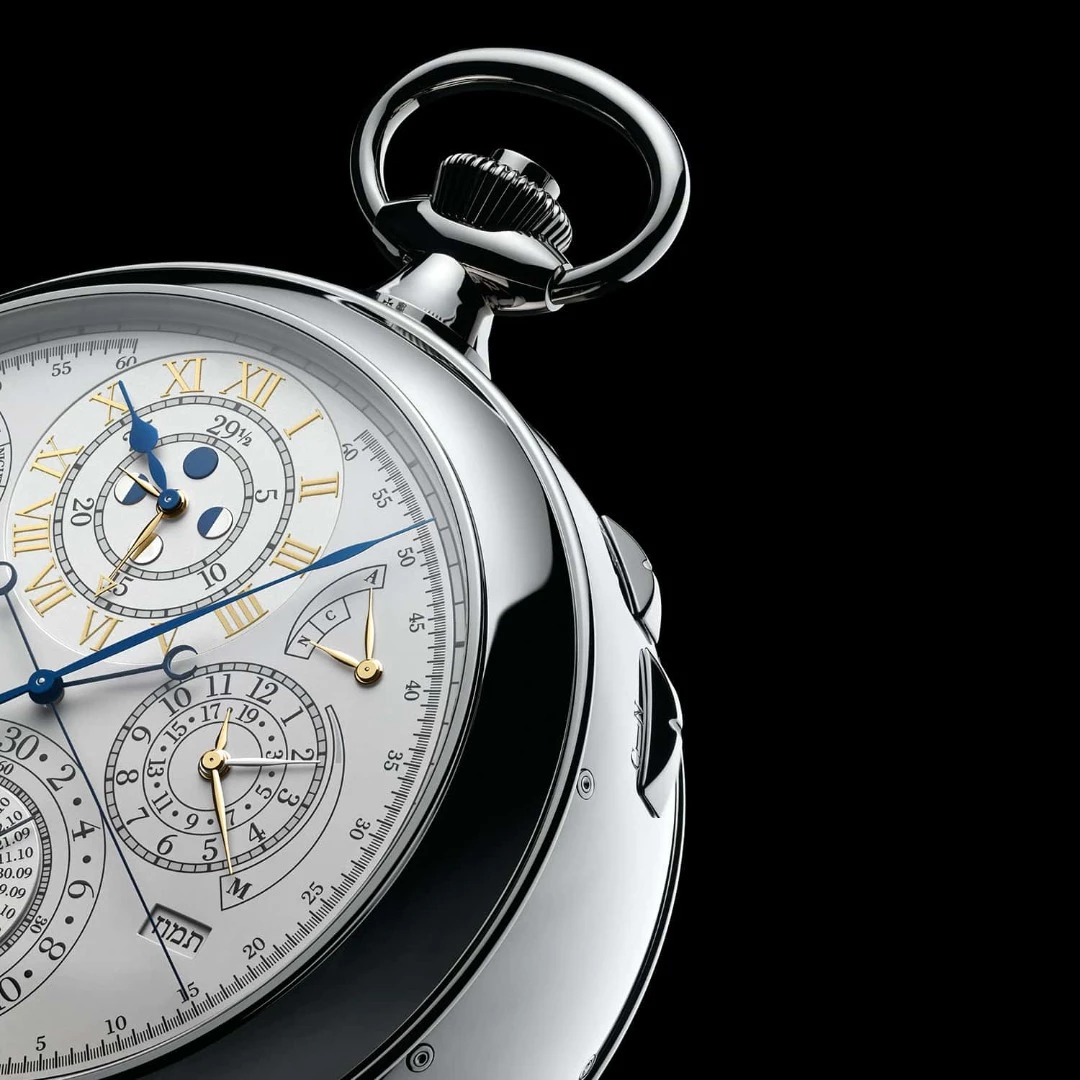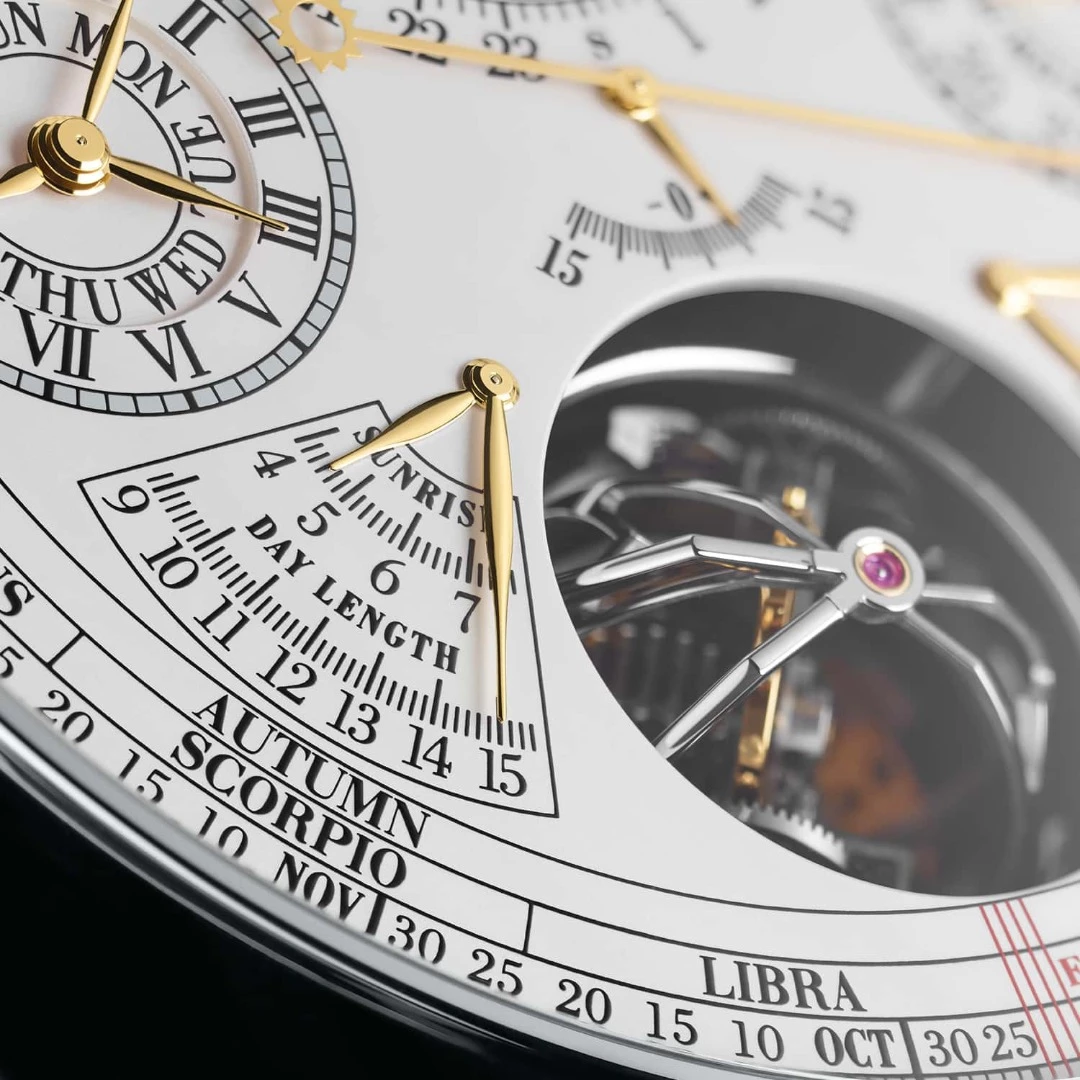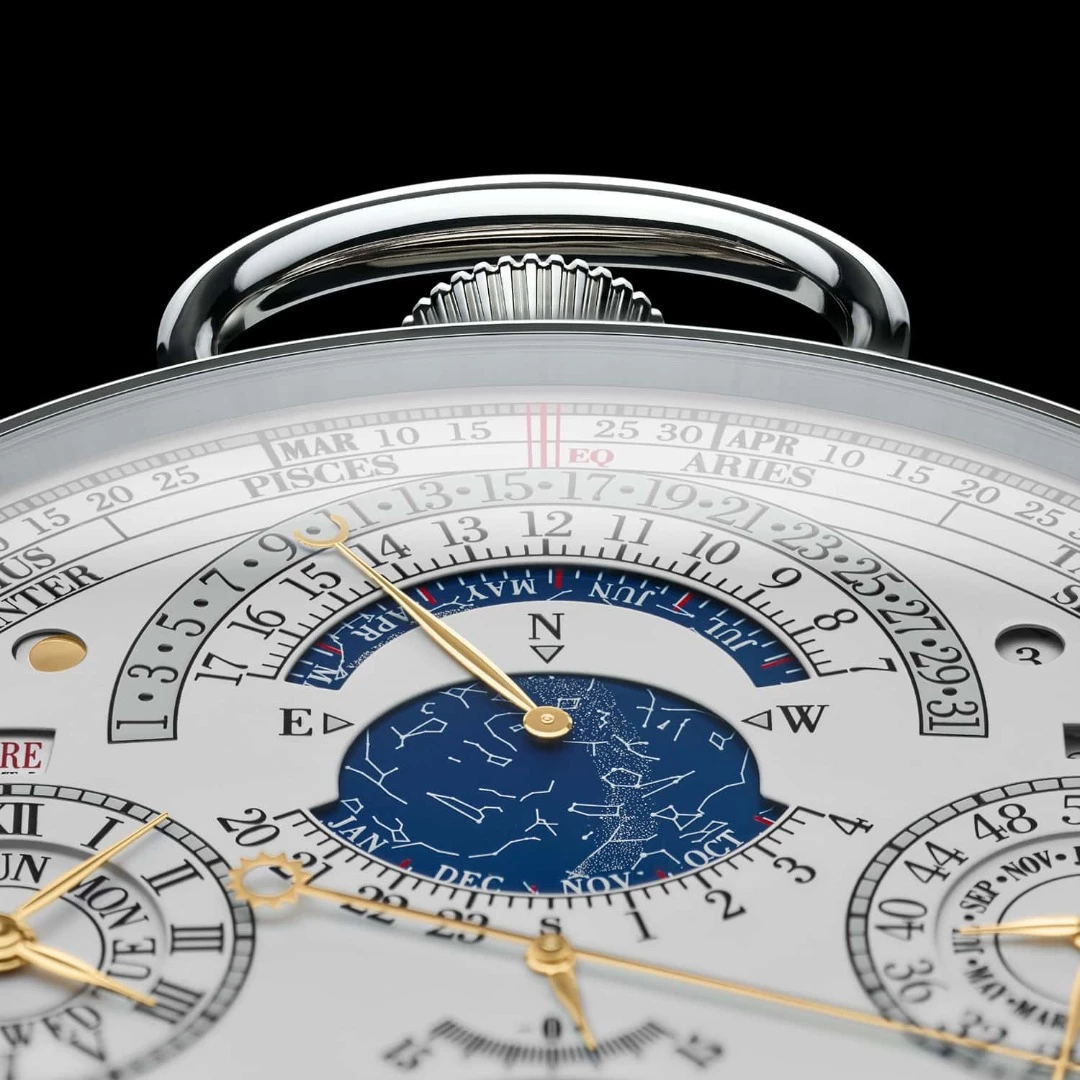Swiss watchmaker Vacheron Constantin is claiming the title of the most complicated mechanical watch ever made with its Reference 57260. Boasting 57 complications (the previous record holder had 33) and a wide array of functions, the Reference 57260 contains over 2,800 components, each one hand-decorated by one Master Watchmaker using traditional techniques. The watch is also Hallmark of Geneva certified, which means it was assembled, timed, and cased in Geneva and has passed rigorous criteria regarding production, workmanship, and precision.
The most obvious thing about the 57206 is that it's no lightweight. The case is made of white gold, measuring 98 mm (3.8 in) in diameter and 50.55 mm (1.99 in) thick with a sculpted crown and discrete pushbuttons on the sides. There are full dials front and back, which are in turn divided into a complex area of subdials, retrogrades, indicators, and windows.
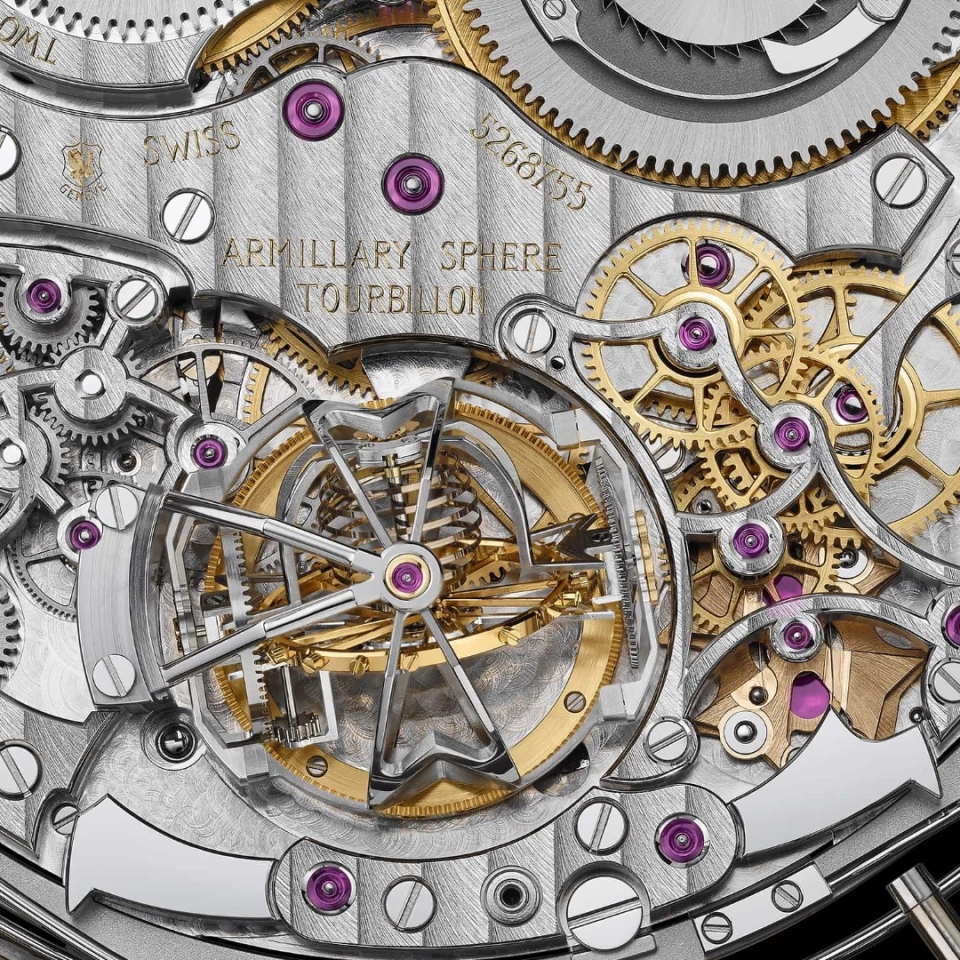
Inside the 57260 is a 242 jewel Caliber 3750 movement that is 36 mm (1.4 in) thick, operates at a frequency of 2.5 Hz and has a 60-hour power reserve. The movements produce the company's Maltese cross trademark and the inscribed Vacheron Constantin moto "Faire mieux si possible ce qui est toujours possible" ("Do better if possible and that is always possible") sits prominently on one of the plates.
This is complicated
There's no hard and fast definition of a complication, but it generally includes any functions that go beyond simple timekeeping. The Vacheron company, whose customers have included Napoleon Bonaparte, popes, maharajas and US presidents, is credited with introducing the first complication in a watch in 1770, so there is some precedent at work with this latest timepiece.
The 57 complications read like a compilation of every watch enthusiast's wish list. Broken down into families, they embrace everything from simple time keeping to astronomy to extremely complex calendars along with some impressive bespoke features.
Six time measurement functions
The first family is a simple appetizer – timekeeping with regulator displays of hours, minutes, and seconds of solar time. The time is spread over three different dials in a regulator display to make it hard to confuse hours for minutes for minutes or seconds. It works, but it takes some getting used to and, like the rest of the complications, a chart is needed to keep from getting lost at first.
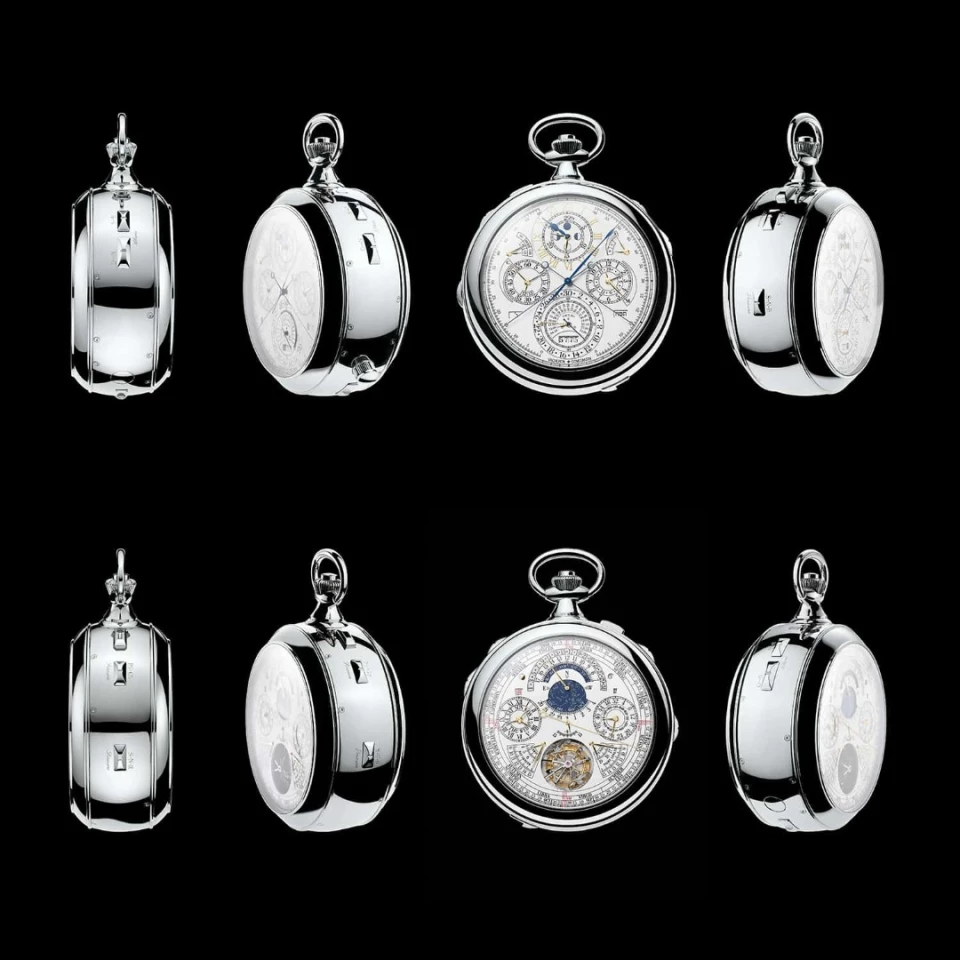
The three-shaft tourbillon platform and an armillary sphere cage that carries the escapement make up a spectacular part of the display. This performs one rotation per minute and works to overcome gravity in whatever position the watch sits, so it remains on balance and keeps proper time. As it rotates, it forms the Maltese cross trademark every 15 seconds.
Backing this up is the tourbillon regulator with spherical balance spring, which protects the armillary sphere from irregularities caused by the watch's internal mechanism. As the spring unwinds, the distance the balance travels varies and the force changes, so the regulator is needed to even this out. According to the company, this solution is very difficult to make, so it's only found in high-end watches and requires diamond escapement pallets to achieve the needed durability.
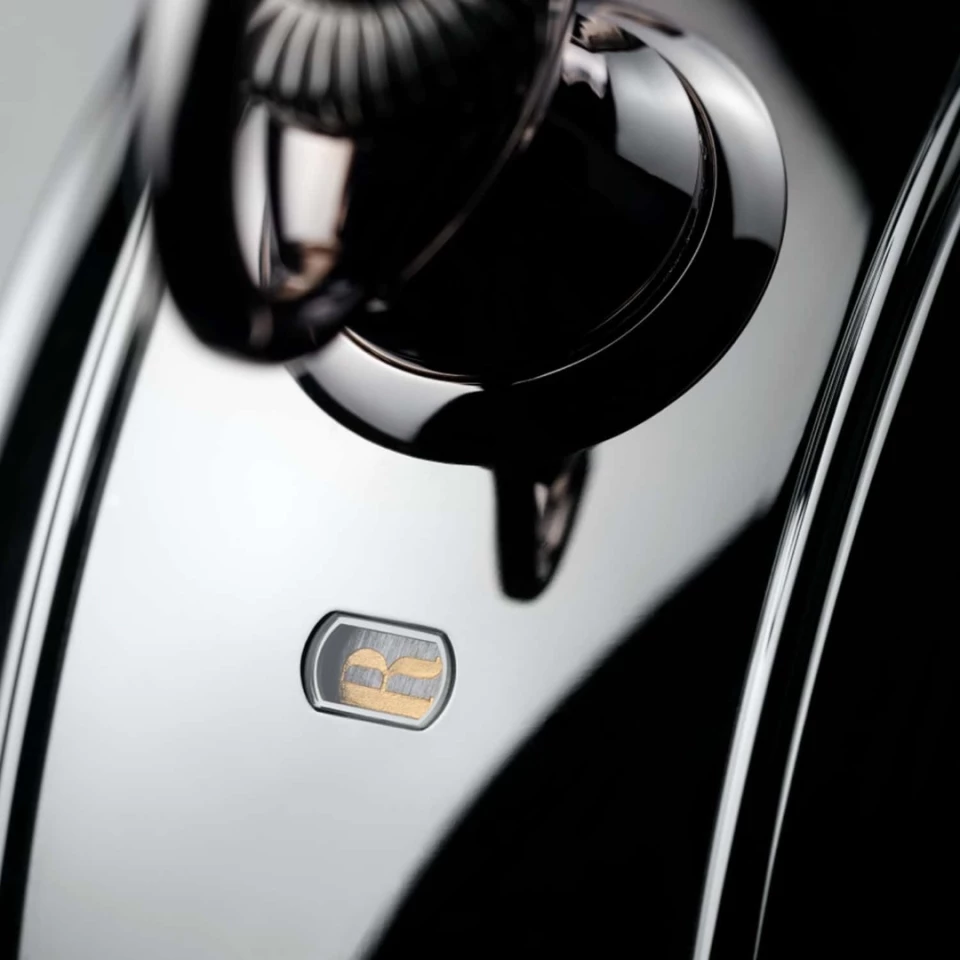
For the traveller who doesn't mind carrying a watch worth a small fortune, the 57206 has a 12-hour time zone, second hours and minutes time zone complication. Normally, such a function would be very large, but Vacheron Constantin has reduced it to a single 12-hour display subdial. This simpler display allows it to work with the 24-city world time complication. This minimizes the usual parade of city names that normally marches around the main dial, using a small window where a three-letter abbreviation for cities are displayed. Above this is another window that shows whether it's day or night in that particular city.
Seven perpetual calendar functions
The next family is made up of seven perpetual calendar functions. The Vacheron Constantin 57206 uses the standard Gregorian calendar and the mechanism automatically computes leap years. It displays the month, the day of the month, the date on a retrograde dial, what number the year is in the leap year cycle, the number of the day of the week, and the number of the week in the year.
Eight Hebrew calendar functions
If one perpetual calendar wasn't enough, the Vacheron Constantin 57206 has three. The second is a Hebrew perpetual calendar that the company says is a first for a top-market watch and is based on the traditional 19-year Metonic lunisolar cycle, which approximately reconciles the solar and lunar calendars. The eight complications include the Hebrew day number in Hebrew, the Hebrew month name, and the Hebrew day. It also displays the Hebrew secular calendar, including the Hebrew century, decade, and year, the age of the Hebrew year according to whether this year has 12 or 13 lunar months, and the golden number, which is the 19-year cycle in the Hebrew calendar.
Nine astronomical calendar functions
The third calendar consists of nine astronomical complications. These include one that shows the seasons, equinoxes, solstices, and the signs of the zodiac using a hand on the reverse side outer dial to represent the position of the sun. The position of the gold hand with a sun-shaped counterweight reads off the months of the year in consecutive order, the constellations of the zodiac, the dates of the autumnal and spring equinoxes, the summer and winter solstices, and the related seasons.
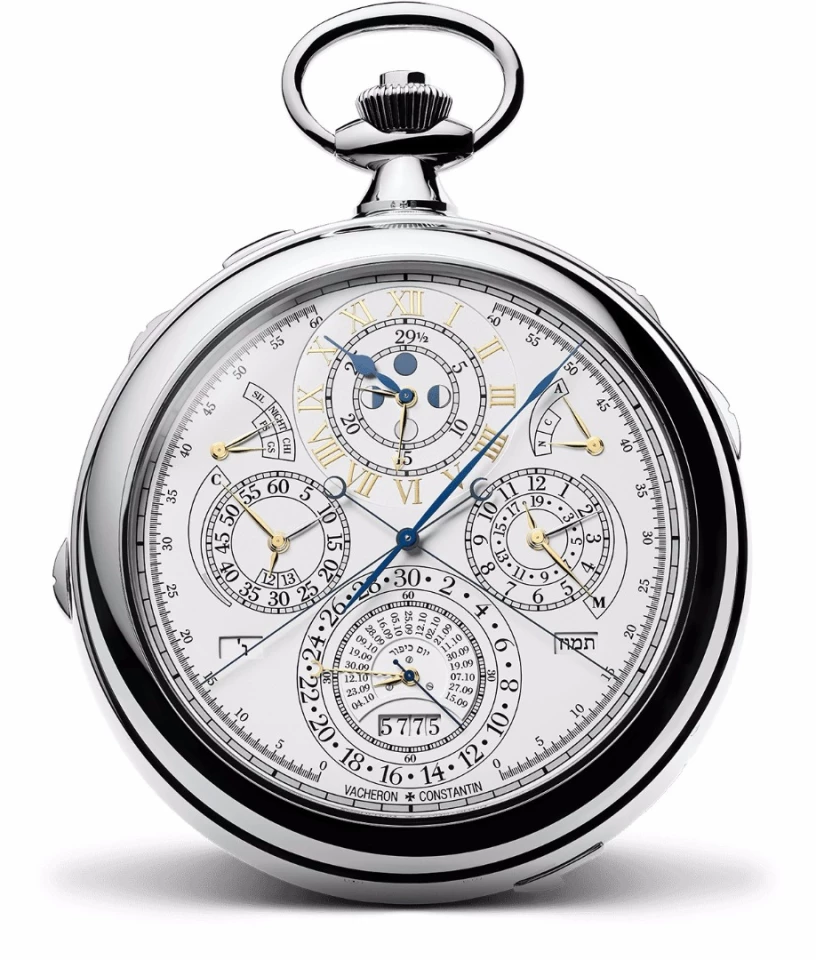
Another complication tied to location is the star chart complication based on the owner's city. The rotating blue disc shows the night sky for that latitude and corresponds to sidereal time, which is based on the interval between a star appearing one night and in the same location the next.
Not surprisingly, the 57206 also displays sidereal hours and minutes in their own complications.
Another complication is the equation of time, which shows the difference between mean clock time and solar time. It's the basis of the figure eight pattern on old globes, which show the position of the Sun at noon as it changes throughout the year, and acts as a visual representation of how solar and clock time vary due to the Earth's tilt and its elliptical orbit. An irregular cam inside the 57206 allows it to synch the two and helps in running the complications to compute sunrise in the owner's city, sunset, length of day, and length of night – each of which has its own display and is accurate within 5 minutes with correction for atmospheric refraction. If desired, the cam needed to make the calculations can be set before delivery for wherever the owner desires.
One lunar calendar function
As with the Sun and the stars, the 57206 also has a lunar calendar complication that shows the Moon's phases and age. Vacheron Constantin warns that the lunar calendar calculations are only approximate, so the watch should be returned to the manufacturer every 1,027 years and 108 days for adjustment.
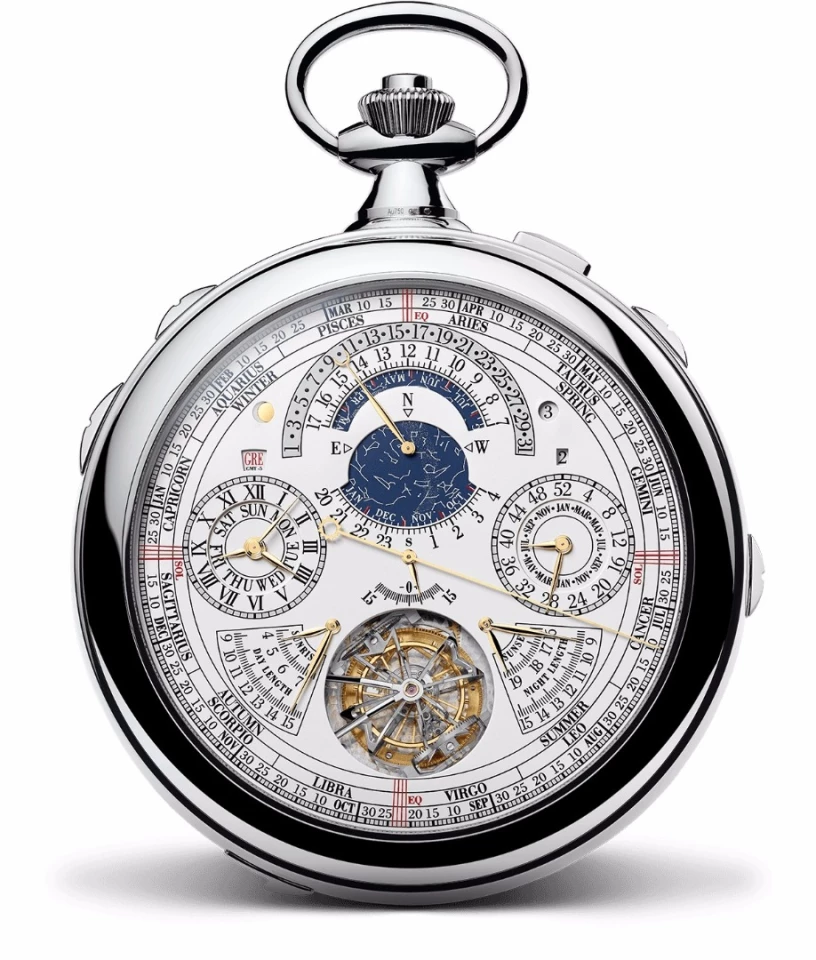
One religious calendar function
In addition to lunar cycles, the 57206 also shows the date of the Jewish festival of Yom Kippur as indicated on the Gregorian calendar at 6 o'clock that day.
Four three-column wheel chronograph functions
A multifunction watch without chronograph would be like a hamburger without onions, so the 57206 has four three-column wheel chronograph complications. These count off seconds and split-seconds on retrograde dials that not only reset when they reach their limits, but account for the time lost during the reset. There's also a minute counter and an 12-hour counter. The chronograph can also handle split counting for recording lap times.
Seven alarm functions
The 57206 also runs to seven alarm functions. It can sound a gradual striking gong or a Westminster chimes carillon with five gongs and five hammers, can sound the alarm either soft or loud, has a strike/silence indicator, an alarm power reserve, and a system to disengage the striking mechanism when it winds down.
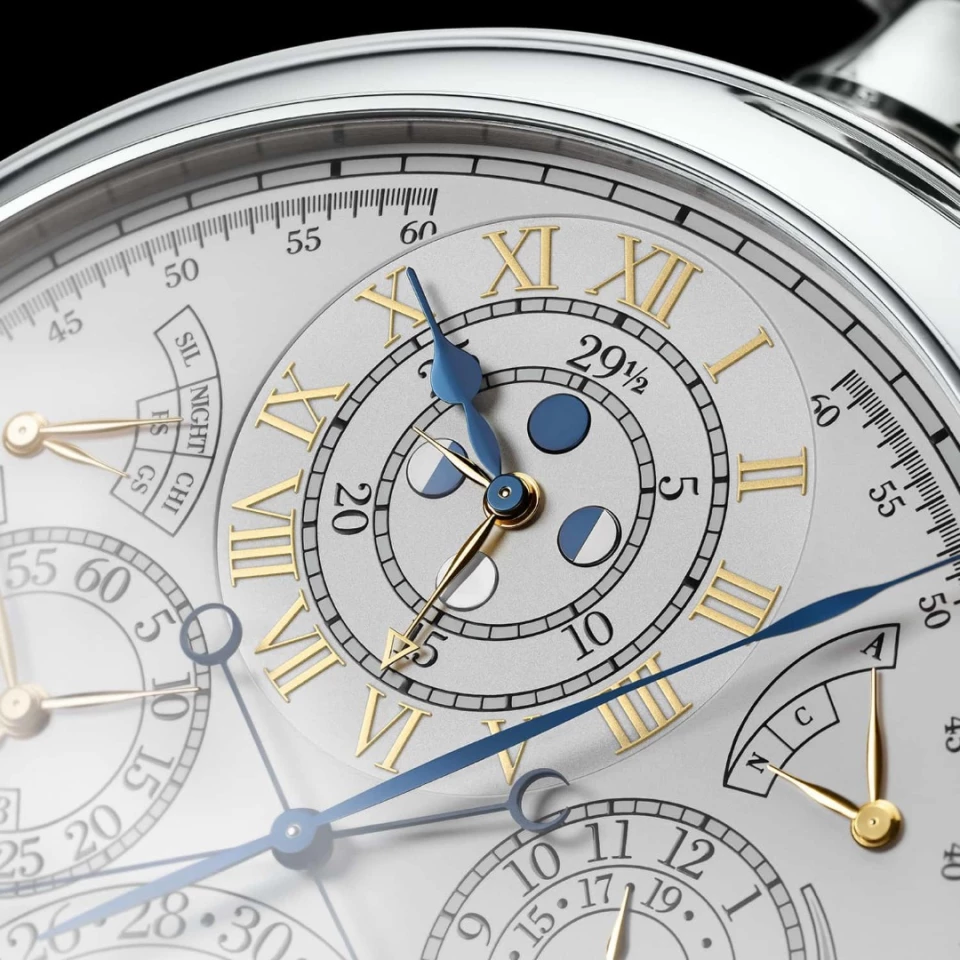
Eight Westminster carillon striking functions
The gong and chimes are also part of eight Westminster carillon complications. The chimes can select to play every quarter hour, in the full sequence as Big Ben does, in abbreviated form, or chime softly.
The chimes can also sound in a repeater mode, where the press of a stud makes the watch sound out hours, quarters, and minutes passed the quarter on demand. The 57206 also has a night complication that automatically silences the chimes between 10:00 pm and 8:00 am. The period can also be custom set for the owner before delivery.
To prevent overwinding, the chiming system disengages automatically when it's fully wound. There are also indicators for the loud or soft modes, as well as the silent, night, and chime modes.
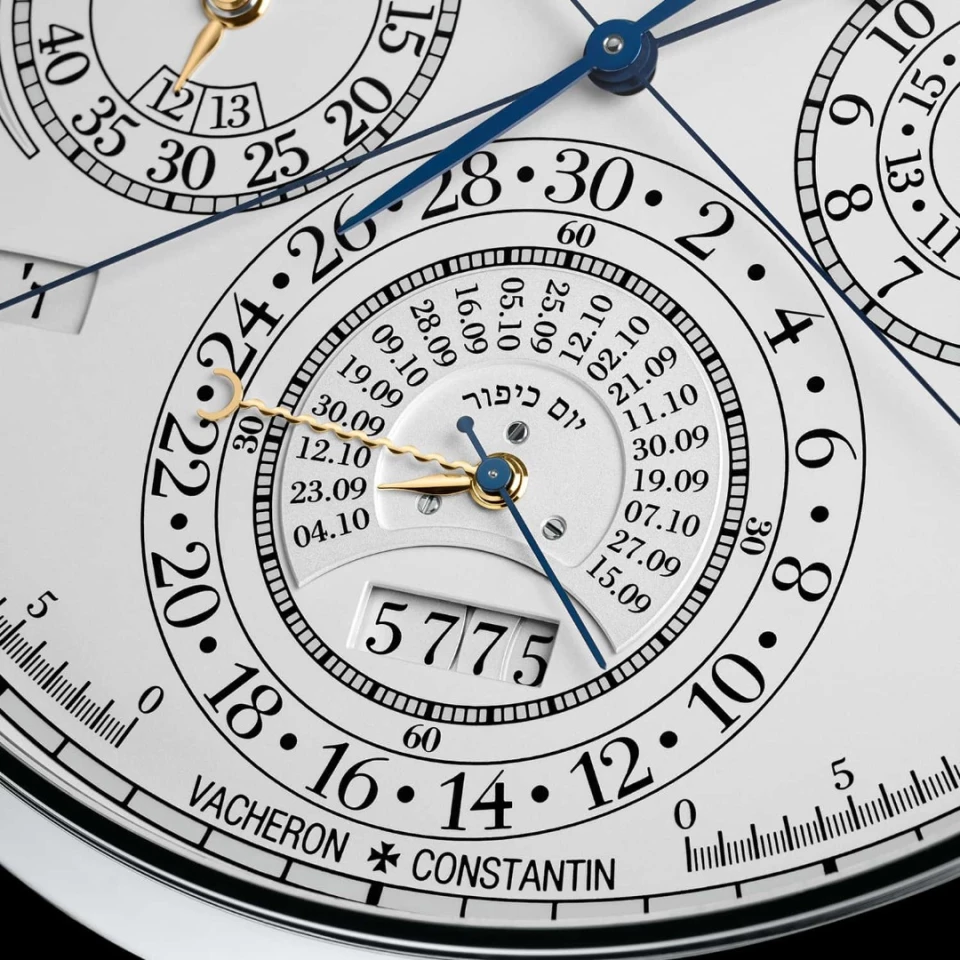
Six other functions
Last, but not least, the 57206 has six miscellaneous complications. There's a power reserve indicator, a power reserve indicator for the striking train, a crown position indicator to show what mode it's in, dual-barrel winding, time setting that allows for two positions and directions, and a "secret" mechanism that unveils the button used to allow winding of the striking train.
No price is officially available for the Vacheron Constantin 57206 , but it's estimated to run in the vicinity of US$5 million.
Previous record holders include the Patek Supercomplication with 24 complications that fetched US$24 million at auction, and the latest champion, the Patek Philippe Caliber 89 with 33 complications.
Source: Vacheron Constantin
